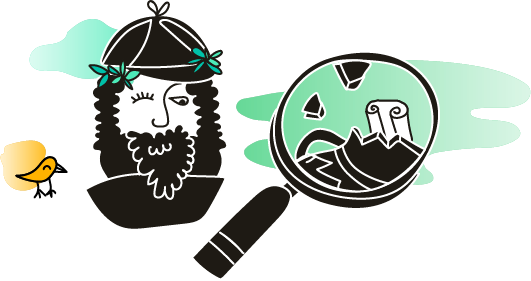

Researchers
Entries
Creators
Titles
Countries
Researchers
Entries
Creators
Titles
Countries
Researchers
Entries
Creators
Titles
Countries
Our Mythical Childhood Website
Antipodean Odyssey Blog
Panoply Vase Animation Project
Mythology and Autism Blog
Our Mythical Childhood Blog
This Project has received funding from the European Research Council (ERC) under the European Union’s Horizon 2020 Research and Innovation Programme under grant agreement No 681202, Our Mythical Childhood... The Reception of Classical Antiquity in Children’s and Young Adults’ Culture in Response to Regional and Global Challenges, ERC Consolidator Grant (2016–2021), led by Prof. Katarzyna Marciniak, Faculty of "Artes Liberales" of the University of Warsaw.
Quaerite et invenietis.

Seek, and ye shall find.